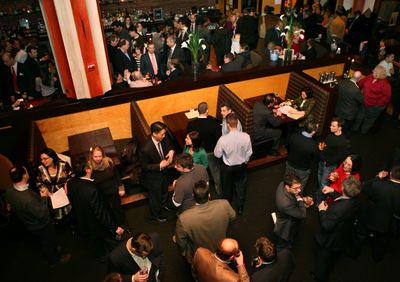Unemployment rate hits 7.6 percent

WASHINGTON – The nation lost nearly 600,000 jobs last month, the worst showing in a third of a century, as a vicious cycle of cutbacks by consumers forced ever more layoffs by beleaguered employers. The unemployment rate catapulted to 7.6 percent, the highest in 16 years, and seems headed for double digits.
Some 3.6 million jobs have disappeared so far in a deepening recession, which is shaping up as the biggest job killer in the post-World War II period.
On Wall Street, investors optimistically assumed action was on the way and pushed stock prices higher. The Dow Jones industrials gained more than 217 points, and all broad stock indexes surged nearly 3 percent.
Battered by the recession, employers slashed a net 598,000 jobs in January, the most since 1974, the Labor Department reported Friday. The jobless rate surged from 7.2 percent in December to 7.6 percent, and economists and government officials all agreed the toll was certain to go higher.
The jobs lost so far since the recession began in December 2007 are the most of any downturn in the post-war period. About half the losses occurred just in the past three months.
Layoffs this month are likely to be just as bad. And job seekers’ prospects aren’t likely to become noticeably better until 2011 – at the earliest – when job growth should return to a more healthy pace, analysts said.
Even if the recession were to end by fall – a best-case scenario – the economy and the job market would remain feeble for some time. Economists predict anywhere from 2 million to 3 million or more jobs will disappear this year and the unemployment rate probably will climb to 10 percent or higher by spring 2010.
“We’re talking years – not months – before we see a decent recovery in the jobs market,” predicted Sung Won Sohn, economist at the Martin Smith School of Business at California State University Channel Islands. “It is going to get worse before it gets better.”
The recession is likely to turn out to be the longest since the 1930s. The two record holders since then – downturns in the mid-1970s and early 1980s – each lasted 16 months. This recession, which would reach that milestone in April, probably won’t end until September, Mark Zandi, chief economist at Moody’s Economy.com, and other analysts said.